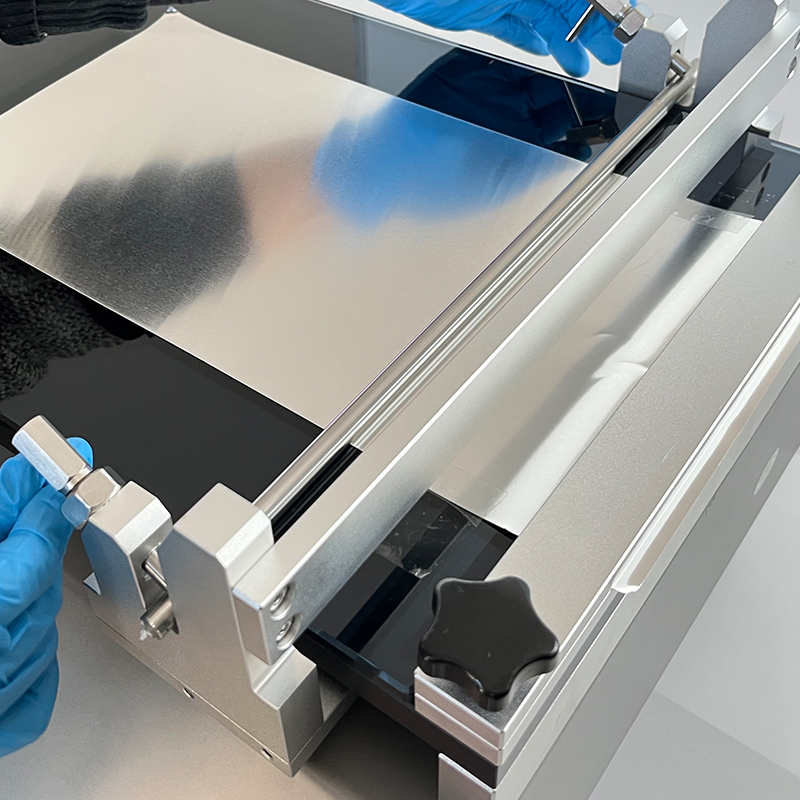In scientific research laboratories, coating machine is a common experimental equipment used to conduct coating experiments on various substrates to study the properties and applications of different coatings. This article will introduce the working principle of the laboratory coating machine and its application in the field of scientific research.

The working principle of the laboratory coating machine
The working principle of a laboratory coating machine is similar to that of a coating machine in industrial production, but it usually has a smaller size and more flexible operation to meet the needs of scientific research experiments. Its main working principle includes the following key steps:
1) Before conducting the coating experiment, the coating materials and substrates need to be prepared first. The coating materials can be various coatings, solutions or dispersions, while the substrates can be glass sheets, metal sheets, polymer films, etc.
2) The laboratory coating machine evenly coats the coating on the surface of the substrate through various coating methods. Common coating methods include:
Manual coating: The coating is applied to the surface of the substrate by manual spraying, rolling or brushing.
Automatic coating: Some advanced laboratory coaters are equipped with automatic coating systems, which can achieve automatic coating and improve experimental efficiency and coating uniformity.
3) After the coating is completed, the substrate needs to be dried and cured to form a stable structure for the coating. This is usually achieved by heating, ventilation or UV curing.
After drying and curing, researchers can conduct various characterization analyses of the coating, such as thickness measurement, surface morphology observation, mechanical property testing, etc., to evaluate the performance and application potential of the coating.
Second, the application of laboratory coating machine
Laboratory coaters are widely used in the field of scientific research, mainly in the following aspects:
New materials research: The laboratory coating machine can be used to study the coating performance and application potential of various new coatings, nanomaterials or functional materials, providing technical support for the development and application of new materials.
Functional coating research: Coatings with specific functionality, such as anti-corrosion coatings, antibacterial coatings, optical coatings, etc., can be prepared through a laboratory coating machine to study their application effects in different fields.
Preparation of thin-film electronic devices: Laboratory coaters can be used to prepare key components of thin-film electronic devices, such as organic solar cells, flexible displays, flexible sensors, etc., providing technical support for research and application in the field of flexible electronics.
Biomedical applications: Laboratory coaters can be used to prepare coating materials in the field of biomedicine, such as drug carriers, tissue engineering scaffolds, etc., to provide technical support for research and application in the field of biomedicine.
III. Conclusion
As an important experimental equipment, laboratory coating machines play an important role in the field of scientific research. Through coating experiments on different materials, researchers can gain a deep understanding of the properties and applications of coatings, and promote research and development in related fields. It is believed that with the continuous advancement of science and technology, laboratory coating machines will demonstrate their important value in more fields.


